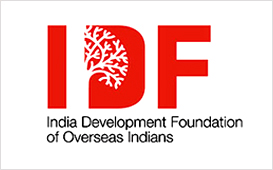Aruba, an integral part of The Kingdom of Netherlands, is an island in the Caribbean Sea located just 27 km off the northern coast of Venezuela. It was given internal autonomy within the Kingdom in 1986. Aruba is considered an exotic tourist destination and its economy heavily depends on tourism. Aruba has an area of 180 square kilometers, a population of 103,065 and a GDP per capita of US$28,000. Dutch, English and Spanish are widely spoken languages in addition to native Papiamento.
2. The Queen of the Kingdom of the Netherlands is the Head of the State and is represented in Aruba by a Governor appointed by her for a six-year term. The executive power is in the hands of Council of Ministers headed by an elected Prime Minister. The 21-member Parliament (Staten) is elected every four years on the basis of a multi-party system. Aruba’s judicial system, which has been derived mainly from the Dutch system, operates independently of the legislature and the executive. Jurisdiction, including appeal, lies with the Common Court of Justice of Aruba and the Supreme Court of Justice in the Netherlands. Mike Eman is the current Prime Minister since 1 November 2009.
3. While Aruba enjoys internal autonomy since 1986, subjects related to defence, national sovereignty, foreign relations, citizenship, extradition etc. are dealt with by the national government in the Netherlands. The Kingdom concludes international agreements on behalf of Aruba for which Aruba is fully consulted and it is up to them to decide whether they are affected, except in matters such as defence etc. which are in full control of the Central Government.
4. Aruba is a well-known tourist destination with its pristine beaches, famous shopping outlets, and an important port of call for luxury cruise liners operating in the Caribbean. It is estimated that over 1.5 million tourists visit the island every year. Tourism is the mainstay of the Aruban economy, with a large number of tourists coming from the United States. In recent years, the Government of Aruba has sought to diversify the economy from an almost exclusive dependence on tourism to encourage investments in various other sectors. It also seeks to promote Aruba as a gateway for Latin America and the Caribbean. The US Dollar is preferred and widely accepted though the Aruban Florin is the official currency. Most of the major international hotel chains have hotels and resorts on the island and all major US airlines and leading European ones fly to Aruba.
Bilateral Relations
5. Relations with India have been cordial. The Embassy of India in Caracas is concurrently accredited to Aruba and Ambassador of India to Venezuela is ex-officio Consul General to Aruba. There are about 800 Indians/persons of Indian origin (PIOs) residing in Aruba, most of whom are in businesses related to jewellery, electronics, and garments. There is an Indian Association of Aruba. There is sporadic trade, mainly through imports by the Indian community on the island. This trade is also seldom destined for domestic consumption but rather for re-export within the region and so does not significantly enhance our export effort. Aruba is now diversifying its economy and is offering its Free Trade Zone to Indian companies as a gateway to Latin America and the Caribbean. Aruba can benefit from the presence of the Indian IT industry and pharma companies dealing in generic medicines from India. Aruba has also shown some interest in attracting tourists from other destinations, including India, and in this regard its Government is open to the idea of holding a mega Bollywood event like the IIFA awards during the off season to boost tourism from India and more importantly Indian-origin tourists from North America and the Caribbean.
6. Mr. Nelson Oduber, former Prime Minister of Aruba, paid a business visit to India on December 10-14, 2007, the first by a senior Aruban dignitary. He met Shri Kamal Nath, Minister of Commerce and Industry, and held extensive discussions with various business leaders, including from Emcure Pharmaceuticals, Apollo Hospital, Tata Consultancy Services, Godrej, Serum Institute etc. in New Delhi, Mumbai and Pune. The meetings were arranged by CII & IMC. An MOU was concluded with Emcure Pharmaceuticals of Pune. However, the Indian company has not yet been able to establish a presence in Aruba owing to various constraints mainly from the Aruban side.
7. In a letter addressed to PM Manmohan Singh, Nelson Oduber had condemned the 2008 Mumbai attacks and expressed condolences and sympathy for the pain and loss suffered by the Indian people.
8. During her recent visit (27-28 March 2012) to Aruba, Ambassador Ms. Smita Purushottam called on H.E. Mr. Fredis Jose Refunjol (FJR), Governor, H.E. Mr. Mike Eman (ME), Prime Minister and Ms. Michelle J Hooybper-Winklaar (MHW), Minister for Economic Affairs, among others.
9. Mr. Ram Prakash Gupta, a leading businessman and respected member of Indian community based in Aruba, is India’s Honorary Consul in Aruba and other Dutch territories in the Caribbean.
10. Consular matters dominate the links between Embassy of India and the people of Aruba, mainly because of Indians residing there. The main issues of concern of the Indian community, many of them Dutch passport-holders, have largely been resolved. These include: Legalization of birth certificates etc. which is now done through simple procedures by the Dutch Embassy in Delhi; Long term visas for PIOs, which are issued liberally by the Embassy, and are now redundant since the introduction of the OCI scheme; The members of Indian and PIO communities in Aruba contact the Embassy for various passport, visa and consular services which are provided expeditiously as per established procedures. Visit to Aruba by Embassy officials are also undertaken to maintain contact with the community.
11. Some issues still remain to be resolved such as that of visas for Indians who do not have sponsors in the island, work permits for businessmen and their employees, residence permits and their extension, visas restrictions for spouses of expatriates in order to encourage Indian investments and enhanced commercial interaction with the island.























